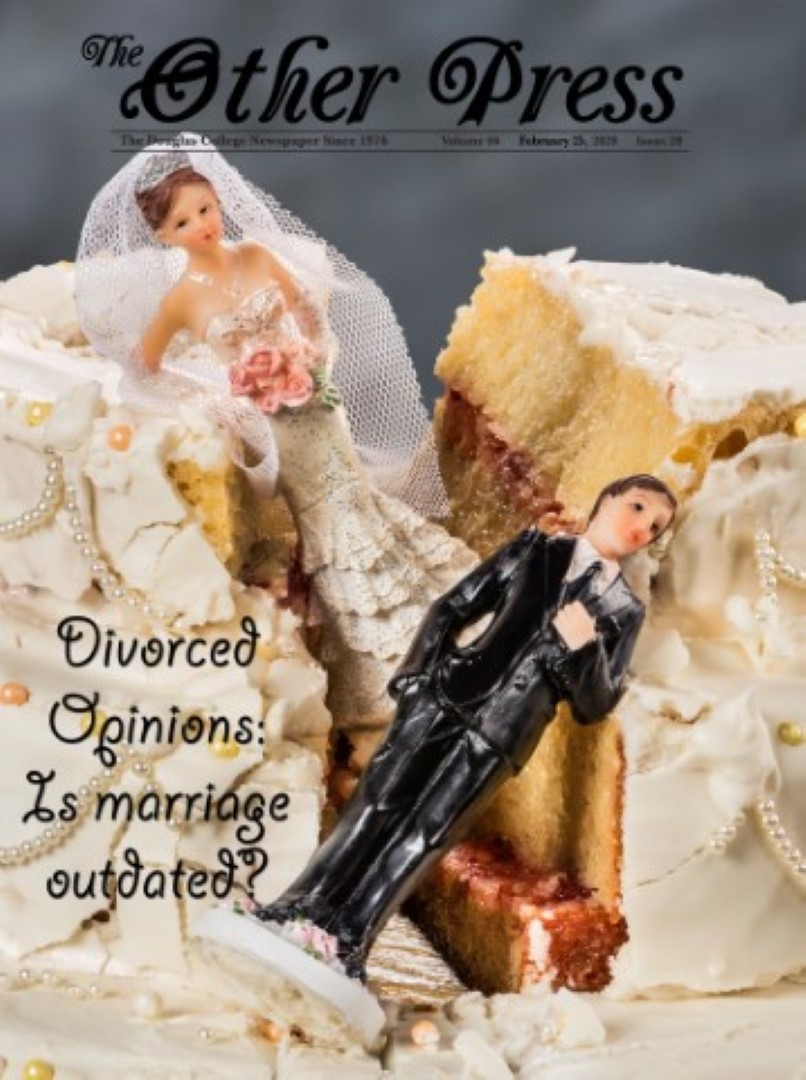
By Morgan Hannah, Life & Style Editor
I have two friends who are absolutely perfect together. They’ve been together for thirteen years and seem to like all the same things. These two travel together and they rarely fight. Yet, the oddest part is that they’re not married. Ask anyone about these two and the answer is always the same: they’re soulmates. Why aren’t they married then? Is it as simple as he hasn’t gotten around to asking for her hand yet?
He certainly has been ribbed by our social circle to get on that for a while now. Or is it something bigger? Perhaps they’re on the bandwagon with those who believe that marriage is unnecessary? It’s just a piece of paper stating that two individuals are legally bound to each other and that these individuals now have rights and obligations to each other. Does the paper really change anything?
Something borrowed, something blue, something over 1000 years old
With the concept of marriage being only about 4000 years old, we know human beings have gotten along fine without the help of this institution before. Is there really a reason for it now, or ever? Some might argue that marriage is antiquated—especially those who aren’t keen on forking over the $8,937 that the average Canadian wedding costs according to a 2017 poll for Global News.
Besides, the concept of love is far older than marriage and older than the dawn of time… as cliché as that may sound. But love is cliché, and that’s what makes it so wonderful. People who are happy together and secure in their love for one another don’t need to spend thousands of dollars to be bound together legally.
It wasn’t love or religion that gave birth to the concept of marriage, but the need to ensure the rights of the parent’s properties to the children.
Nowadays, we live in a fragile, single-use world where everything that has flaws is tossed aside for the upgraded version—including people. According to CBC, 4 in 10 of all first marriages in Canada end in divorce, which can be financially and emotionally costly. The rising rate of divorce, especially in new marriages, is evidence enough to suggest that people have little respect for the oath of marriage and are likely just looking for a something (or someone) to fill a short-term need.
An arrangement of flowers—and marriage
What about arranged marriages? Arranged marriages have been part of the Indian culture since the 4th century and serves many functions beyond the quest for love. Love may very well be a side effect that comes with the duration of the arranged marriage, but it is not guaranteed.
Since love is not the goal, arranged marriages tend to be more successful and have far lower rates of divorce. The bonding offers many things: pleasing social status, an opportunity for parents to find a good partner for their children, continuing the family name, and keeping property in the family. Yet, in the traditional sense, an arranged marriage is outdated seeing how love and friendship is a big priority for many now.
Another aspect to consider is that previously, couples got married at a younger age and made the decision to tie the knot easier. Today, it seems as though both men and women are more career oriented rather than family oriented—
resulting in many wanting to become professionally established before settling down.
But that shouldn’t have any impact on the idea of marriage itself, as one can pursue their professional career with the help of their partner. Perhaps people are just afraid of committed relationships bogging down their dreams. To me, that sounds like the wrong relationship, not something wrong with marriage.
It’s commonplace
One argument concerning wedlock is the prevalence of “common-law marriage” nowadays. A 2017 Statistics Canada report says 15 percent of people were living in a common law relationship. According to the Income Tax Act, common-law essentially consists of two same or opposite sex people who have lived in a marriage-like relationship for 12 months or longer. With the perks of a common-law marriage being practically like that of a licence marriage, many people are opting for this cheaper option that also offers less legal formalities.
In British Columbia, common-law couples share the same benefits are married couples. For instance, they are entitled to a 50/50 split of assets that has been acquired in the length of their relationship should they split up. With all the perks of a legal marriage, some question the relevance of licensed marriages in today’s society.
Marriage is a personal choice, to some it may seem like an antiquated practice, but to others it is relevant and imperative. If you can afford it, or really desire the legal ramifications of binding yourself to another, then go for it!
Throw together a shindig of love, sign those government documents, and officially tie the knot. If you can’t afford it, or don’t find value in marriage, there’s absolutely nothing wrong with a relationship like the one my friends have.

